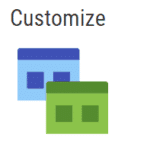
Article Contents
Introduction to Online Examination System
With the ever-growing demand to improve the overall effectiveness of an organisation, online examinations are widely becoming the preferred method for conducting exams.
Online exams offer an array of benefits when compared to traditional exams. We will take a look at 5 of the most important factors to consider when looking for an online examination system in 2024.
One of the most important aspects in any type of education is exams.
In a world where nearly all schools are moving towards online learning, it’s no wonder that switching over from traditional examinations has become necessary for many students who want more flexibility with their schedules or instructors they can’t get close enough too!
Let us see what an Online Examination System entails so you can decide if this option would work best for your needs as well.
An Online Examination system is a web based software application which helps to conduct online examinations on devices which support internet. It is designed using ultra-modern technology to provide various mechanisms to support and carry out every process related to online exam conduction.
Its most important purpose is to simplify the seemingly complex and insecure process of conducting online examinations.
An Online Examination System can be used for multiple purposes such as conducting online examinations (objective or subjective) and for evaluating the answer sheets as well.
Thus, such a versatile platform is beyond doubt going to prove extremely useful for education sector as well as for many other sectors.
Let us see the features embedded in such platforms in detail.
Features/Advantages of Online Examination System
The Online Examination System works to prevent any sort of cheating or malpractice carried out by the candidates in any form. With the help of such systems, it has become exceptionally simple to monitor the candidate even from a very remote location.
Let us see the features offered by the Online Examination System which offers so many advantages.
The three types of proctoring offered by the online examination system are as below:
Image based proctoring:
The images of the candidates are taken with the help of web camera after certain intervals of time. These images are stored in the database the administrators can analyse it later for any discrepancy such as candidate not facing the camera, multiple face in front of the camera, etc.
Audio based proctoring:
In this type of proctoring, a sound sensitive technique is used to capture any deviations in the sound. This feature sends an error notification if it senses even the slightest sound such as voice coming from candidate’s background, flipping of pages, etc.
Video proctoring:
A proctor or supervisor monitors the candidates through web camera throughout the duration of the exam. This video footage is stored so that it can be analysed later if any candidate is suspected of cheating.
The Online examination systems are embedded with some mechanisms which are powered by Artificial Intelligence. Let us have a look at them.
Object detection
This feature helps to detect any suspicious movements referring to books or using any electronic devices to search for answers during the exam activity. It can immediately stop the exam if it senses any deviation.
Live chatting
This feature uses chatbots for communication during exam activity. The candidates can chat with the supervisor to resolve queries so that the online exam is conducted smoothly.
Facial recognition of user
The most popular technique of AI is facial recognition which is used to scan the face of the candidate for authentication purpose before the exam begins. The candidate is provided the permission to start the exam only if the scanned face matches the one stored in the database.
There are some more useful features offered by the Online Examination System are as below.
Secure Browser
This feature comes in handy when a candidate tries to switch to another window or tries to open a new window and even when there is some software running in the background which is used for recording or capturing screens. This feature can stop the exam and the candidate can get disqualified.
IP address based proctoring
As soon as the candidate launches the software, the IP address of the system get stored in the database. This feature can stop the exam if the candidate tries to launch the exam on any system having different IP address.
Audit logging
This feature is very useful as it tracks down every activity such as login and logout time, start and end time of the exam, clicking of mouse, navigation between questions, etc. related to the exam. It send as error notification in case of any discrepancy.
Here are a few advantages of adopting an online examination system for conducting online exams;
- The online exam can be launched on any internet based device such as computers, laptops, tablets and mobile phones. A well functioning web camera and speakers are essential as well.
- Clearly, the candidates can appear for the exam from any remote location in the world.
- The online exams can be both subjective and objective as also can be conducted in any language preferred by the candidates.
- The online examination system provides the feature of Onscreen evaluation so that the answer sheets can be checked online.
- The answer sheets are saved on cloud which makes it easier to upload or download them anytime from anywhere.
- With the help of multiple Algorithms, the result can be generated quickly and accurately.
- It can also measure, compare and predict candidates’ performances.
- All these absolutely beneficial features can be acquired at a very reasonable cost.
All the above mentioned features and advantages of online examination system will certainly provide security, reliability and simplicity in conducting online exams.
Now let us have a look at the reasons to adopt an online examination system by education sector.
Reasons to Adopt Online Examination System

As we know, exams play a major role where learning activities are concerned. The educational institutes in India have been following basic education policies which included classroom based education and standard syllabus for every student.
The Online systems offer many features and advantages to ensure smooth conducting of online exams. It helps to automate the tedious process, reduce manual work as also help to reduce the administrative costs.
Online education system can adapt to different ways of assessment as per the understanding of the students. The students can watch the lecture repeatedly until they understand the concept. This will enable the teachers to spend more time on resolving queries of the students or focusing on the others who need more attention.
The Indian education system will definitely welcome a makeover using technology. The touch of technology will not only help to improve the quality of the education but also help the students learn better.
The knowledge thus gained using technology will be well-retained by the students and help them build a better future.
Things to look for while choosing an Online Examination System

There are many organizations which develop Online Examination systems which might claim to offer numerous features. Some of them might prove useful while some of them might not be adequate to ensure smooth functioning of online exams. Thus here is a list of things you should look for while choosing an online examination.
1. Security
As we are talking about exams, security holds utmost importance. Thus, it is crucial to check the security mechanisms offered by online examination systems. These security systems must be robust and created using the best possible technology.
They must use encryption and decryption to store sensitive data such as credentials, question banks, exam time table, exam pattern, etc.
It must provide mechanisms for candidate authentication and authorization to avoid identity frauds. It must provide features for remote invigilation as also must be able to prevent any sort of cheating or malpractice strictly.
2. Complexity
Any software which is difficult to handle and less user-friendly is not preferred by anyone. Usability is vital while using exam related software. Thus, choosing an online examination system which is simple and hassle free is really important.
The systems which are uncomplicated to handle will not only ensure flawless conduction of online exams but also acquire customer satisfaction.
3. Training
This is another important aspect which must be considered while choosing an online examination system. As the concept of online exams is fairly new in the education system, it is indeed necessary to provide training to the students and teachers prior to the exam.
Events such as trainings, mock tests, videos, etc. should be arranged for the students and the faculty members so as to provide them a demo of the upcoming online exam. This can help them get familiar with the features, functionality and workflow of the system.
This will help the students to appear for the exam with confidence and will thus ensure easy conduction of the online exams.
4. Audit process
Sometimes, the students might raise queries related to their answer sheets. Sometimes, the administrators need to verify if the online exam was conducted in a fair manner. In such situation, Audit process proves really helpful.
Audit process records all activities related to exam process such as login logout activity, exam launch and end time, mouse clicks, location, IP address, etc. It is necessary to store all this information so that it can be retrieved easily.
5. Scalability
If a large number of students appears for the exam simultaneously, there are chances of the server getting crashed. The server might not unable to bear the load created by the increasing traffic which will result in termination of the online exam.
Thus to avoid this, scalability is indispensable. This feature ensures that the online exams can be conducted seamlessly for even an extensive amount of candidates who might appear for the exam at the same time.
6. Compatibility
The online examination system must be compatible to all internet based devices such as computers, laptops, tablets and mobile phones. The systems must have facility to be launched on smartphones, android phones, etc.
The candidates must be able to launch the online exam on any device of their choice.
This will ensure that all the candidates appear for the online exams in spite of their location.
7. Instant query resolution
The AI powered feature of Chatbot proves extremely useful during the exam. The students and parents might ask questions before the exam. The students might face some technical issues just before or during the exam.
All these queries can be resolved instantly with the help of chatbots. This will help them to save the time wasted on resolving different technical issues and ensure that they start and end the exam exactly on time.
In short, you need to look out for the technologies being used to create the online examination system as well as the best practices being followed by the organization.
Bonus Tip Configuration Options for Online Exam
Online Exam configuration should support various possibilities of defining new question paper for each candidate, defining exam schema for subject according to syllabus, defining marking scheme.
Online examination system should support various configuration options which are user friendly and flexible in nature.
Summary
Until now, the online exams were being conducted in corporate companies for recruitment or training purposes. But now, the educational institutes have also started taking the concept of Digital India seriously.
The foreign education policies followed a hybrid mode of education which included a blend of offline and online learning.
The education policies which were followed in the western countries are slowly being inculcated in Indian education system as well. Thus, India education system has also started inducing online learning methods so as to improve the quality of knowledge.
Thus online education system is the best way to address all the flaws related to traditional classroom based education.
It can promote the best ways of giving and receiving knowledge which will prove beneficial to every stakeholder and every aspect of Indian education system to a great extent.




![How Government-Led Exams at 250+ Locations Are Setting New Standards of Integrity [Case Study]](https://www.eklavvya.com/blog/wp-content/uploads/2024/04/Enhancing-Exam-Integrity-Government-Certification-in-250-Locations-150x150.webp)
![Transforming Central Govt. Exams Evaluation: How Onscreen Marking is Leading the Charge [Case Study]](https://www.eklavvya.com/blog/wp-content/uploads/2024/04/How-Onscreen-Marking-Revolutionized-Central-Govt-Exams-Case-Study-1-150x150.webp)















![How Onscreen Marking Revolutionized Central Govt Exams [Case Study]](https://www.eklavvya.com/blog/wp-content/uploads/2024/04/How-Onscreen-Marking-Revolutionized-Central-Govt-Exams-Case-Study-1-300x300.webp)
